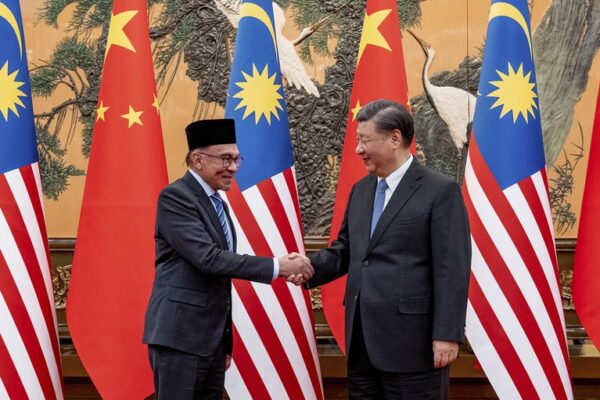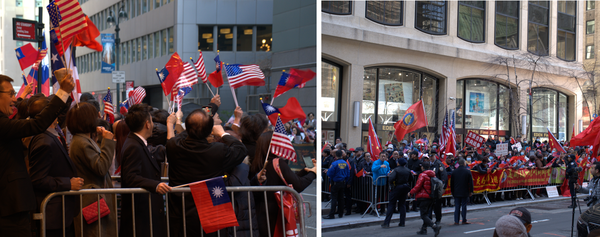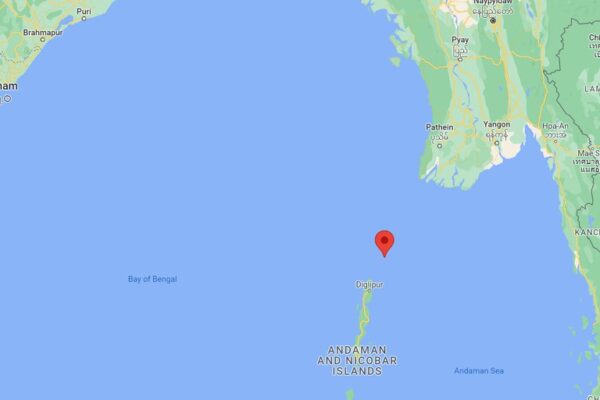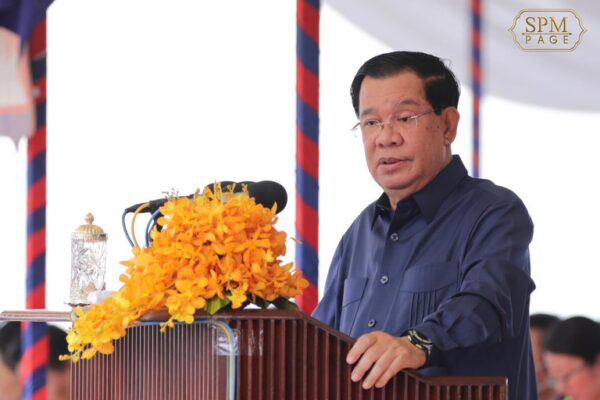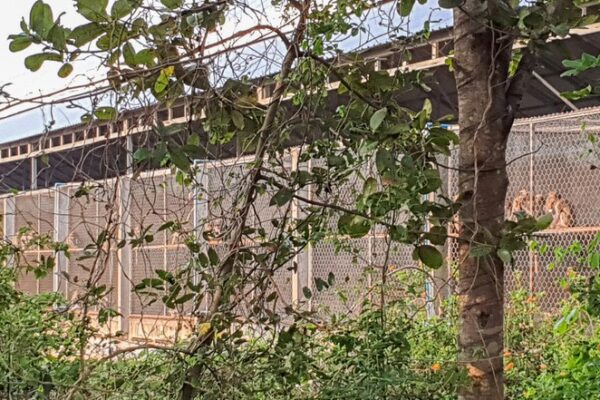
Cambodia sells research monkeys to the world. It’s not all legal, US says.
Visitors are not welcome at the monkey farm co-owned by the sister of Cambodian Prime Minister Hun Sen. The farm is ringed by moat-like canals, 6-foot-6-inch-high (2 meters) earthworks and a brick wall topped with razor wire. A former employee told RFA that guards with Kalashnikov assault rifles patrol the grounds inside the farm in rural Kampong Speu province, which is two hours’ drive from the capital Phnom Penh. So, what’s there to secure behind the walls? The answer is the captive animals within: long-tailed macaques, a breed of primate favored for medical research. Cages of monkeys are seen on the grounds of a farm co-owned by the sister of Cambodian Prime Minister Hun Sen in rural Kampong Speu province, March 2023. Credit: RFA Once an unremarkable player in the business of providing the animals for a global research industry, Cambodia has become a hub for exports of long-tails – a lucrative but shadowy business tied to the nation’s political elite. Growing demand from the COVID-19 pandemic meant primate farms like the one owned by the prime minister’s sister exported about a quarter of a billion dollars worth of research macaques in 2022, according to U.N. trade data. But as the business booms, questions are emerging about the origin of the monkeys Cambodia ships around the world. Allegations of illicit trade are at the core of a high-profile legal case brought by U.S. wildlife prosecutors against senior Cambodian government officials. Two officials have been charged with issuing fraudulent export permits certifying poached monkeys as captive-bred animals to circumvent U.S. import restrictions and international treaties governing the trade in endangered species. Cambodia’s wildlife and diversity director, Kry Masphal, was arrested in New York in November while traveling to a conservation conference in Panama. His boss, Forestry Administration Director General Keo Omaliss, was also indicted but remains at large in Cambodia. A permit issued by the Cambodian government for the export of monkeys. Credit: Handout Kry is currently under house arrest near Washington, D.C., and set to face a court proceeding in Miami in June. Yet with so much money to be made in Cambodia, experts fear there is little incentive for reform in the country. “It’s kind of like the realization of our worst fears,” said Ed Newcomer, a recently retired U.S. Fish and Wildlife Service agent who spent 20 years investigating wildlife crimes around the world. “When government officials, and relatives of high-powered officials, are involved in the wildlife trade, how are the Cambodian regulatory and enforcement agencies supposed to effectively enforce the law?” The monkey business Long-tailed macaques, which are native to Southeast Asia, are so-named because their tails are usually longer than the length of their bodies. Other distinguishing characteristics include tufts of hair atop their heads and whiskers around their mouths. An engineer takes samples of monkey kidney cells at a lab in China. Credit: AFP file photo Also known as “crab-eating” monkeys, they are highly prized by biomedical researchers for their similarity to humans. Testing on the animals helped lead to a vaccine for yellow fever. More recently, they’ve been used to test treatments for issues ranging from reproduction to obesity and addiction. Demand for their species soared with the onset of the coronavirus pandemic, as macaques were critical in the development of the mRNA vaccines for COVID. Until recently, China was the world’s top supplier. But in a bid to protect its own vaccine development, Beijing banned exports of research monkeys, leaving Cambodia as the number-one source for a global research industry that was suddenly facing a severe shortfall. In 2019, Cambodia exported the most primates it had ever shipped in a single year, sending 14,931 overseas for $34 million – an average cost of just over $2,271 per monkey, according to the U.N. trade data. The number of macaques being exported and the average cost per monkey continued to rise. Countries reported importing around $250 million worth of monkey shipments from Cambodia in 2022 alone, according to the data. Questions of origin But experts say it would be impossible for all of them to have been legitimately raised and sourced according to rules that govern the use of research primates. Partly to protect dwindling wild populations, but also to reduce potential contamination of experiments, only captive-bred macaques are allowed in medical research. However, they are also slow-breeding, with infants taking three years to reach maturity. So, captive-bred stocks frequently struggle to meet researchers’ needs, and suppliers are often incentivized to pass off wild-caught monkeys as farm-reared. Although a black-market trade in the monkeys has long blighted the industry, the COVID-driven supply shortage has sent illicit poaching into overdrive, conservationists say. “There’s just too much money in this business now for these macaques to stand a chance,” said Lisa Jones-Engel, a primatologist who now advises the animal rights group Peta. A study published last month in One Health, a peer-reviewed veterinary science journal, found that Cambodian breeders would have needed to more than quadruple production rates – from 81,926 over a four-year period to at least 98,000 in a single year – to have legitimately exported the number of macaques shipped during the pandemic. As Cambodia has never reported importing long-tailed macaques, such an increase would have to have been driven entirely by an increase in domestic supply. Yet “Cambodia has historically been incapable of producing second generation offspring macaques, therefore increasing their production capacity legally seems unlikely,” the researchers wrote. The sister The farm owned by the prime minister’s sister Hun Sengny sits at the end of a dusty road on the outskirts of the sleepy town of Damnak Trach. It is registered under a Cambodian firm, Rong De Group, for which she serves as chairwoman. The uniforms of the security guards who wield the assault rifles bear the insignia of her private security firm, Garuda Security Co. Locals who spoke to RFA all described the “boss” of the farm as being Chinese expatriate, Dong Wan De, who Commerce Ministry records identify as the…

